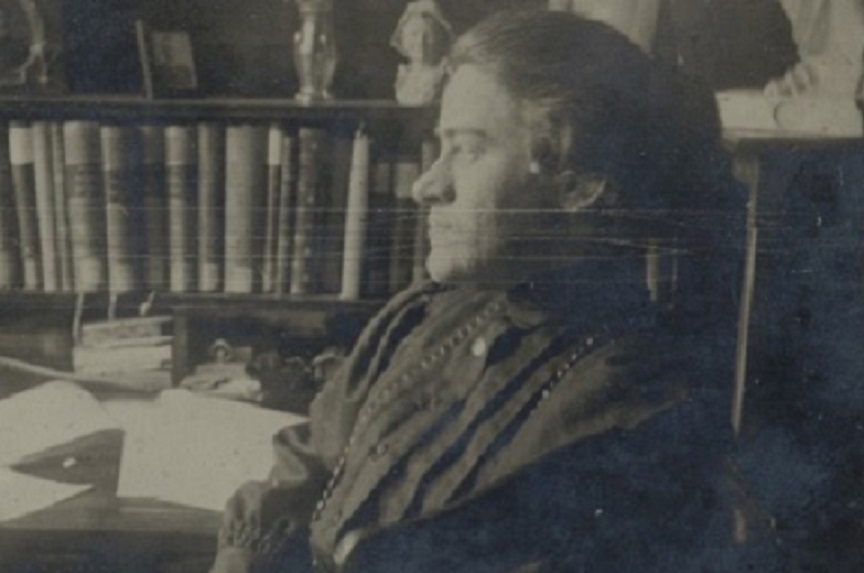Anna Tumarkin, philosopher (1875 – 1951)
The first female professor in Europe to supervise and examine doctoral students
Anna Tumarkin earned her place in history in 1906 as the first female professor in Europe with the authority to supervise and examine doctoral students. Highly respected at the time in her field of philosophy, this trailblazer was a role model to many.
Author: International Relations Office

The few women professors that had existed until Tumarkin's promotion had been denied this responsibility.
When 17-year-old Tumarkin arrived in Switzerland in 1892 to study at the University of Bern, she would have felt that she was in good company. Half of the student body was from abroad, many of whom were Russian women like Tumarkin. Following the assassination of Tsar Alexander II, access to university was highly restricted in Russia under Alexander III, and many young Russians looked to the West to further their education. Like Tumarkin, the Russian women were united by their thirst for higher education and pioneering mind-sets.
The young Anna Tumarkin completed secondary school in her home city of Kichinev, then in the Russian Empire (today the Moldovan capital of Chisinau). She was the daughter of a Jewish merchant family, who supported her desire for higher education.
In Bern, Tumarkin focused on German studies, history and philosophy, finding her true calling in the latter. Three years later, she passed her doctoral exams summa cum laude in 1895. She then went to Berlin to further her studies, increasingly concentrating on aesthetics. She returned to the Swiss capital in 1898 and obtained her doctorate of philosophy, which allowed her to teach at the faculty. At twenty-three years old, Tumarkin was well respected as an academic.
Career path
The Russian philosopher steadily climbed the university career ladder, never shying away from her ambition. By 1906, she satisfied the conditions to be granted the title of professor. In 1909, she was promoted to a full professorship for philosophy with special emphasis on aesthetics. Both these achievements attracted international attention.
In more than 30 years as professor of philosophy in the University of Bern, Tumarkin dedicated herself to her academic field and her students.
She authored several books about philosophy, notably Die Romantische Weltanschauung (World View of the Romantics) in 1920, and Wesen und Werden der schweizerischen Philosophie (The Essence and Coming-into-Being of Swiss Philosophy) in 1948, a history of Swiss philosophical thought, much respected by her peers.
As a leading example of what women could achieve if given the opportunity, Tumarkin was an active supporter of the Swiss women’s suffrage movement. In 1928, she took part in the first Swiss Exhibition of Women’s Work (Saffa), an event to highlight women’s contribution to society and the economy, later describing this experience as being among her fondest memories.
Tumarkin thrived in Switzerland, becoming a Swiss citizen in 1921. She spoke of her gratitude to Switzerland, the freedom and broadmindedness she found there, the education and intellectual activity she enjoyed, along with the company of her friends and students.
In sharp contrast, her Russian-Jewish family suffered a litany of hardship, from the First World War to the imposition of Communism to German occupation. As a Jewish academic and former Berlin student, Tumarkin followed the rise of the National Socialists and the persecution of Jews with horror. She lost many friends and family in the Holocaust.

End of days
Turmarkin’s friendships with some of her Russian peers from the early days in Bern accompanied her to the end of her days, when ill health made it difficult to continue to work at the university.
She shared a home with Ida Hoff, a long-time friend from the early days, from 1912 until her death in 1951. Moscow-born Hoff was another University of Bern trailblazer, who lectured in medicine and became Bern’s first female school doctor. The two women died within a year of each other and were buried in the same grave.
